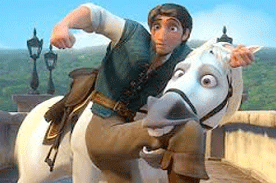Robert Evans Wilson, Jr. —
Recently I posted an article on Facebook about a high school kid who was punished severely for something I considered to be a minor infraction. My friend, Jay, posted that he thought the kid deserved the punishment. Another friend, Pat, then posted, “Jay, you’re an ass!” (I have changed my friends’ names to protect their privacy).
I was disturbed by Pat’s post, so I deleted it, and emailed him privately asking him to challenge Jay’s assumptions and arguments, but to avoid name calling. He wrote me back telling me that I was spineless for trying to make everyone play nice in the sandbox. Then he unfriended me on Facebook.
I created a drama triangle
Now, I have been friends with both of these men for more than 40 years. So, I was shocked that Pat unfriended me. I thought I was just encouraging some healthy debate, but on closer examination of my motives, I realize that I was trying to protect Jay. I created a drama triangle casting Jay as the Victim, Pat as the Villain, and myself as the Hero (ironically, Jay probably doesn’t even know he was a victim because I most likely deleted the post before he had a chance to see it). In hindsight, I should have simply stayed out of it, and Pat would still be my friend.
The traditional drama triangle refers to the three roles as victim, persecutor, and rescuer. I have a rich history of being a rescuer. I recall fixing things around an ex-girlfriend’s house that she had shown no interest in fixing, nor had she asked me to fix them; then I was disappointed when she showed little or no appreciation for the work I had done (thus casting myself into the role of victim).
The Un-Comfort Zone
I am guilty of being a helicopter parent trying to spare my children from the trials and pains of life. My sons finally asked me to stop helping them unless they asked for it (smart kids!).
As a 25 year old, I was proud of myself for rescuing my ex-wife from the filth and crime of New York City by moving her to Atlanta (she did want this). Yet by doing this, and several other rescues, she came to expect me to always satisfy her needs – often at the expense of mine.
Even my Facebook post was an attempt to rescue (from afar), the kid who was punished, by bringing attention to his plight.
In my defense, I came by my rescuer personality honestly. My mother, a narcissist, was always creating drama triangles from which I was expected to save her. Someone would “hurt her feelings” and I would assure her that I loved her unconditionally to make her “feel better.” This is what I learned growing up, and it is a pattern that I have followed religiously.
I was unaware of the concept of drama triangles until I began therapy a few years ago. My therapist explained it to me, but I was resistant at first. I liked being a rescuer – I like helping people. I enjoy sharing what I have learned: showing elementary school kids how to deal with bullies; showing business owners how to increase sales with advertising; showing people how to think more creatively; and so on.
The trick is learning when people actually want my help, and whether or not it is really needed. I need to pause and determine if the situation is a drama triangle in the making – then stay the hell off of it!
It’s time for me to retire my white hat, before I lose any more friends.
Robert Evans Wilson, Jr. is an author, humorist and innovation consultant. He works with companies that want to be more competitive and with people who want to think like innovators. He is the author of the inspirational book: Wisdom in the Weirdest Places, and the humorous children’s book: The Annoying Ghost Kid. For more information on Robert, please visit http://www.jumpstartyourmeeting.com
 TheBulletin.ca Journal of Downtown Toronto
TheBulletin.ca Journal of Downtown Toronto

